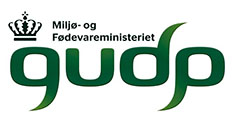Process development for neutralization of bitterness in protein ingredients
PROJECT IS COMPLETED
Period: 2016 - 2019
During the slaughter process of pigs and cows large amounts of by- products are generated such as heart, diaphragm, hemoglobin, plasma or blood, all of which contain a high proportion of protein with excellent nutritional value. When treated with different proteases, the protein- containing part can be recovered from the other components in the by- products. The generated soluble peptides are then extracted and spray- dried. The resulting powder can be used as protein ingredients in food products where high protein content is desired. The main challenge with this process is that during the hydrolysis of the proteins, small hydrophobic peptides are release, leading to an undesirable bitterness of the hydrolysates.
The challenge of the PEPTASTE project is to develop new processes aiming to neutralize the bitterness of the hydrolysates to support high-value food applications.
Reduction of bitterness in peptides is a challenging task and different approaches have been descried in the literature. The most used approach is to further degrade the bitter peptides by different types of exopeptidases. The uses of exopeptidases have been successful in reducing the bitterness in many applications especially in hydrolysates from milk and plant proteins. However, it has to be optimized in each application and often it is not possible to completely remove the bitterness. Recent studies have shown that a combination of Maillard reaction and peptide crosslinking by transglutaminase can reduce the bitterness of the peptides by changing the physical properties. This approach is based on a different mechanism compared with the use of exopeptidases.
It is expected that combination of the two approaches would be an efficient way to remove bitterness in the protein hydrolysates. Bitterness is perceived rather different by different persons and some persons are more sensitive than others. The determination of bitterness in protein hydrolysates will need expert sensory panels, which are selected on their broad spectrum ability to recognize and reliably quantify the intensity of bitter taste in the protein hydrolysates.
As a final step of the project will be a proof-of-concept carried out by a small ingredient company (Toft Care). The resulting protein ingredients will be tested in different food dishes and drinks that will be served to elderly in different environments such as hospitals and nursing homes.
Rene Lametsch
Associate Professor
Ingredient and Dairy Technology
Yu Fu
Postdoc
Ingredient and Dairy Technology
Jorge Ruiz-Carrascal
Assistant Professor
Design and Consumer Behavior
Wender Bredie
Professor
Design and Consumer Behavior
Sandra Stolzenbach Wæhrens
Assistant professor
Design and Consumer Behavior
Funded by:


Project: Process development for neutralization of bitterness in protein ingredients made by hydrolysis of by-products from the slaughter industry (PepTaste)
Period: 1st of September 2016 - 31st of December 2019
Grant donor: Green Development and Demonstration Programme (GUDP)
Grant: DKK 4,210,625
Contact
 Rene Lametsch
Rene Lametsch
Associate Professor
Ingredient and Dairy Technology
